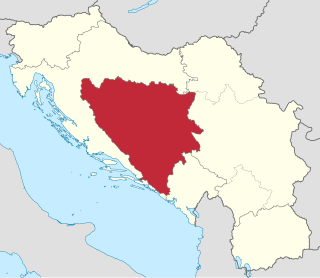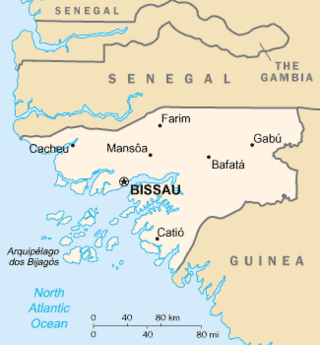
United Nations Security Council resolution 794, adopted unanimously on 3 December 1992, after reaffirming resolutions 733 (1992), 746 (1992), 751 (1992), 767 (1992) and 775 (1992), the Council "[expressed] grave alarm" regarding the situation in Somalia and authorised the creation of the Unified Task Force (UNITAF) to create a "secure environment for humanitarian relief operations in Somalia" in order to provide "essential for the survival of the civilian population". The current resolution determined that "the magnitude of human tragedy caused by the conflict in Somalia, further exacerbated by the obstacles being created to the distribution of humanitarian assistance [constitutes] a threat to international peace and security".
Madaya is a small mountainous town in Syria, located at an altitude of around 1,300 metres (4,300 ft). It is located about 40 kilometres (25 mi) northwest of Damascus in the Rif Dimashq Governorate and is home to Lake Barada, although this must be a metaphorical reference because there doesn't seem to be a lake anywhere nearby. According to locals in the area Lake Barada used to be bigger but due to pollution and industrial causes it has shrunk. Madaya often is snow-top during the winter months especially on January and February. According to the Syria Central Bureau of Statistics (CBS), Madaya had a population of 9,371 in the 2004 census. Its inhabitants are predominantly Sunni Muslims. Madaya is home to a large illegal market home to foreign brands that are smuggled in from Lebanon's Chtaura, which is close to the area.

The United Nations Mission in the Central African Republic and Chad (MINURCAT) was a United Nations peacekeeping mission established by the United Nations Security Council on September 25, 2007 to provide a multidimensional presence of up to 350 police and military personnel to eastern Chad and north-eastern Central African Republic

United Nations Security Council Resolution 436, adopted unanimously on October 6, 1978, after noting the deteriorating situation in Lebanon and being deeply grieved at the loss of life in the country, the Council called upon all parties involved in the hostilities to end acts of violence and observe a ceasefire.

United Nations Security Council resolution 752, adopted unanimously on 15 May 1992, after reaffirming resolutions 713 (1991), 721 (1991), 724 (1991), 727 (1992), 740 (1992) 743 (1992) and 749 (1992), the Council expressed concern at the situation in the Yugoslavia, in particular the fighting in Bosnia and Herzegovina, demanding that all parties end the fighting and respect the ceasefire signed on 12 April 1992.

United Nations Security Council resolution 824, adopted unanimously on 6 May 1993, after considering a report by the Secretary-General Boutros Boutros-Ghali pursuant to Resolution 819 (1993), the council discussed the treatment of certain towns and surroundings as "safe areas" in Bosnia and Herzegovina.

United Nations Security Council resolution 1143, adopted unanimously on 4 December 1997, after recalling all previous resolutions on Iraq, including resolutions 986 (1995), 1111 (1997) and 1129 (1997) concerning the Oil-for-Food Programme, the council, acting under Chapter VII of the United Nations Charter, extended provisions relating to Iraqi oil sales for a further 180 days to meet the humanitarian needs of the Iraqi people.

United Nations Security Council resolution 1216 was adopted unanimously on 21 December 1998. After expressing concern at the crisis and humanitarian situation in Guinea-Bissau, the Council called for the immediate establishment of a government of national unity in the National People's Assembly and the holding of elections by the end of March 1999.

United Nations Security Council resolution 1409, adopted unanimously on 14 May 2002, after recalling all previous resolutions on Iraq, including resolutions 986 (1995), 1284 (1999), 1352 (2001), 1360 (2001) and 1382 (2001) concerning the Oil-for-Food Programme, the Council extended provisions relating to the export of Iraqi petroleum or petroleum products in return for humanitarian aid for a further 180 days and approved a list of revised sanctions against the country. Its adoption streamlined the sanctions program, with restrictions on shipping civilian goods to Iraq lifted though prohibitions on weapons and military goods remained.

United Nations Security Council resolution 1454, adopted on 30 December 2002, after recalling all previous resolutions on Iraq, including resolutions 661 (1991), 986 (1995), 1284 (1999), 1352 (2001), 1360 (2001), 1382 (2001), 1409 (2002) and 1447 (2002) concerning the Oil-for-Food Programme, the council adjusted the list of restricted goods and procedures for its implementation under the Oil-for-Food Programme. It was the final Security Council resolution adopted in 2002.

United Nations Security Council resolution 1472, adopted unanimously on 28 March 2003, after recalling all previous resolutions on Iraq, including resolutions 661 (1991), 986 (1995), 1409 (2002) and 1454 (2002) concerning the provision of humanitarian aid to the Iraqi people, the Council approved adjustments to the Oil-for-Food Programme giving the Secretary-General more authority to administer the programme for the following 45 days. The programme had been suspended when the Secretary-General ordered all United Nations staff out of Iraq days before the U.S.-led invasion.

United Nations Security Council Resolution 1972, adopted unanimously on March 17, 2011, after recalling previous resolutions on the situation in Somalia, particularly resolutions 733 (1992), 1844 (2008) and 1916 (2010), the Council authorised an ease on its assets freeze relating to humanitarian operations in the country for 16 months.
United Nations Security Council Resolution 1778 was unanimously adopted on 25 September 2007.
United Nations Security Council Resolution 1894 was unanimously adopted on 11 November 2009.

Humanitarian aid during the Syrian Civil War has been provided by various international bodies, organizations and states. The main effort is coordinated by Jonh Ging of the United Nations Office for the Coordination of Humanitarian Affairs (UNOCHA). In 2014, U.N. Security Council Resolution 2165 authorised humanitarian aid to be supplied via four border crossings not controlled by the Syrian government, generally to supply rebel-controlled territory.

United Nations Security Council Resolution 2118 was adopted unanimously on 27 September 2013, in regard to the Framework for Elimination of Syrian Chemical Weapons during the Syrian civil war. It recalled United Nations Security Council Resolutions 1540, 2042 and 2043 and occurred on the sidelines of the General debate of the sixty-eighth session of the United Nations General Assembly. Under the Resolution, Syria had until mid-2014 to destroy its chemical weapons arsenal; and the Resolution also outlines plans for a transition. Despite a few hiccups, the OPCW reported that the destruction was largely on schedule.

The United Nations Security Council Resolution 2268 was unanimously adopted on 26 February 2016. It is calling for a cessation of hostilities and a grant for access to humanitarian workers in Syria.
United Nations Security Council Resolution 2165 was passed by a unanimous vote on 14 July 2014, and allows direct humanitarian access across four border crossings not controlled by the Syrian government.
United Nations Security Council Resolution 2585 was passed by a unanimous vote on 9 July 2021, which allowed UN agencies to continue to coordinate and deliver aid cross-border from Turkey to northwestern Syria without Syrian government consent. Russia had threatened to veto renewal of the mandate to allow cross-border aid, but agreed to a compromise the day before the mandate was set to expire on 10 July 2021.












